Superstars of the 60s: Johnny Rivers
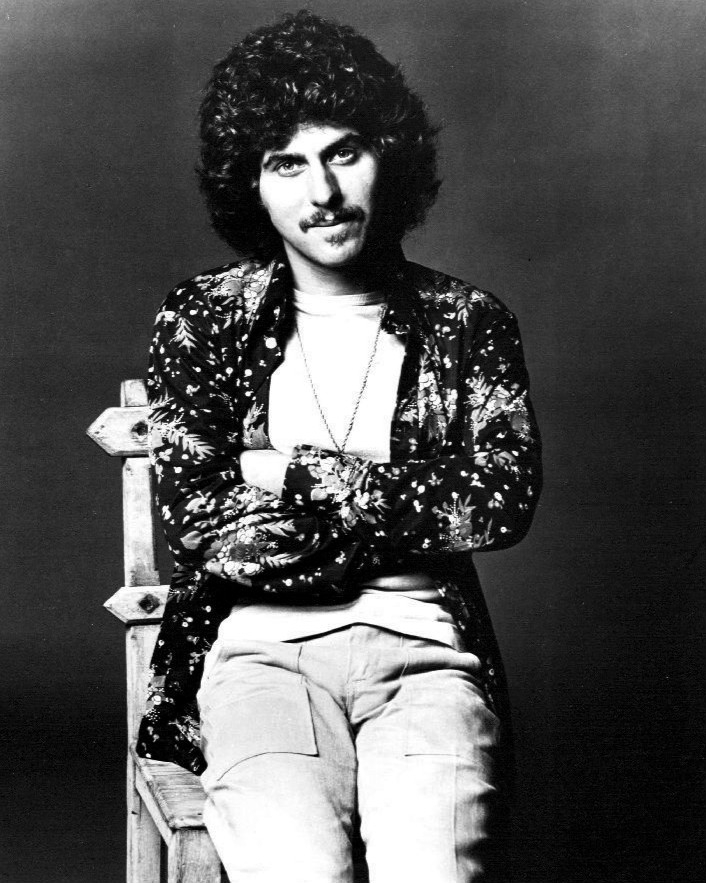 Imagine it you had 9 top 10 records, 17 songs in the Top 40 and founded your own record label where you discovered such acts as the 5th Dimension. Now, imagine all that and you’re still not in the Rock & Roll Hall of Fame!
Imagine it you had 9 top 10 records, 17 songs in the Top 40 and founded your own record label where you discovered such acts as the 5th Dimension. Now, imagine all that and you’re still not in the Rock & Roll Hall of Fame!
Then you must be imagining that you’re Johnny Rivers.
Rivers is a New York boy who was born John Ramistella. While still a kid, his family moved to the Louisiana where Johnny took his last name from the Mississippi River. He struggled for years to get a foothold in the recording business, eventually traveling from Louisiana to L.A.
 Nothing happened until Johnny was signed to a year’s contract at the Whiskey A-Go-Go nightclub. Johnny opened for the club’s traveling roster of headliners. Soon, Johnny was packing crowds in on his own. He finally achieved his breakthrough with a version of Chuck Berry’s “Memphis.” Legend has it that Johnny stole the arrangement from Elvis Presley after Presley played him a demo of the song that King was planning on releasing. For that time forward, apparently, Rivers was persona non grata around Presley.
Nothing happened until Johnny was signed to a year’s contract at the Whiskey A-Go-Go nightclub. Johnny opened for the club’s traveling roster of headliners. Soon, Johnny was packing crowds in on his own. He finally achieved his breakthrough with a version of Chuck Berry’s “Memphis.” Legend has it that Johnny stole the arrangement from Elvis Presley after Presley played him a demo of the song that King was planning on releasing. For that time forward, apparently, Rivers was persona non grata around Presley.
Rivers followed up his first hit with many more, most of them covers of rock & soul classics like “Baby, I Need Your Lovin’,” “Maybellene,” and “Midnight Special” interspersed with new tunes like “Poor Side of Town” and “Summer Rain.” He scored one of the biggest hits of his career when he was asked to sing the American theme song to a British spy TV series. When Danger Man starring Patrick McGoohan was imported into the U.S., producers decided to rename it Secret Agent. Most Baby Boomers can still sing the lyrics to that theme by heart.
Rivers then became one of the first rock stars to form his own label - Soul City Records. One of the first acts he signed became the labels biggest success - the 5th Dimension. Rivers also gave songwriter Jimmy Webb one of his first breaks by encouraging the 5th Dimension to record Webb's tune "Up, Up & Away."
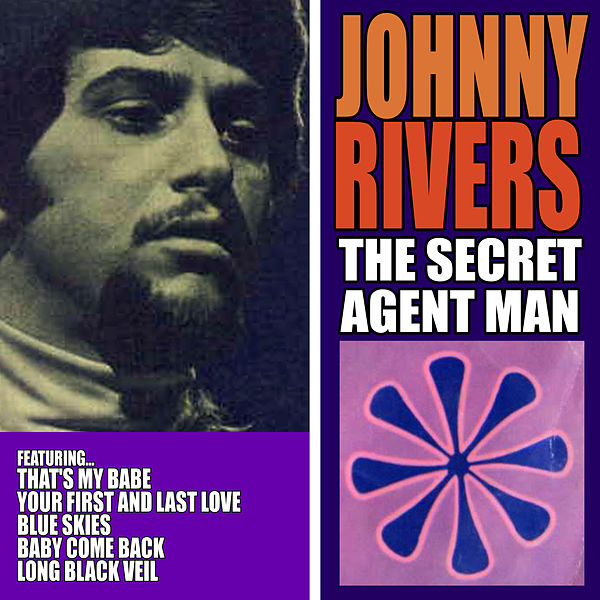 Rivers had his final 2 hits in the early 70s – a cover of “Rockin’ Pneumonia & the Boogie Woogie Flu” and “Slow Dancing (Swayin’ to the Music).”
Rivers had his final 2 hits in the early 70s – a cover of “Rockin’ Pneumonia & the Boogie Woogie Flu” and “Slow Dancing (Swayin’ to the Music).”
Rivers continued recording into the 1980s, but without much success. He still tours to this day – doing some 50 to 60 shows a year.
As for the reason he’s not in the Rock & Roll Hall of Fame? You’ll have to ask the selection committee.
New Internet Scam – Promising Puppies

If you think “catfishing” online is bad (that’s someone pretending to be someone else), we now have people scamming other people with the fake promise of a puppy.
If you’re looking for a fur buddy, beware anyone offering to sell you a dog over the internet, especially if they’re asking you to buy gift cards and read the numbers to them over the phone.
The experts say you’re better off visiting a local shelter. Not only will you get a real dog, but you can make sure you and your new best friend hit off before you take him or her home.
Walk - Less - Live Longer
 Everybody knows you need to walk 10,000 steps a day to maximize your personal health, right? Wrong. Turns out that “10,000 steps” figure did not come from any scientific study. It was made up by somebody in the marketing field because it sounded good.
Everybody knows you need to walk 10,000 steps a day to maximize your personal health, right? Wrong. Turns out that “10,000 steps” figure did not come from any scientific study. It was made up by somebody in the marketing field because it sounded good.
Recent scientific studies of approximately 17,000 women showed only 4,400 steps provided a health benefit, while the maximum benefit came at 7,500 steps.
Wishing You A "Bewitching" Halloween!
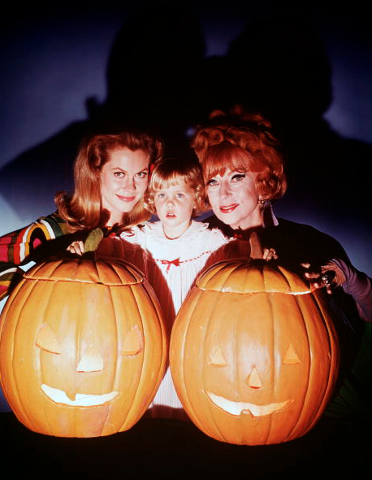
The TV That Time Forgot: Boston Blackie (1951-53)
Boston Blackie began life as a jewel thief and safecracker in a series f pulp stories written by Jack Boyle. He reached his greatest fame in a series of mystery movies produced in the 1940s by Columbia Pictures. In the movies, Blackie was now a reformed jewel thief, who nonetheless is always suspected by police inspector Farraday of being the guilty party in the mystery of the moment.
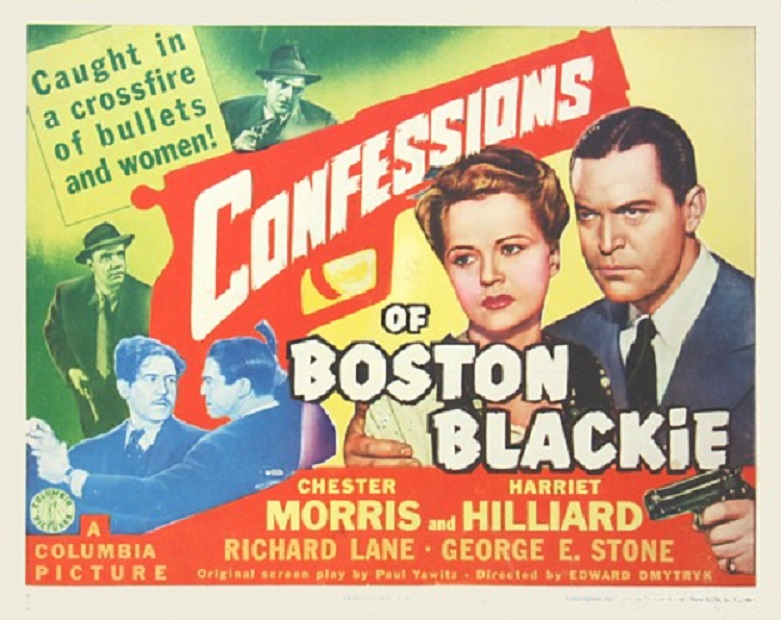 Portrayed on the screen by Chester Morris, Blackie was the engaging, witty rascal, always one step ahead of the police. He was drawn into solving these crimes in order to clear his name and get the cops off his back. A strong undercurrent of comedy ran through the popular series.
Portrayed on the screen by Chester Morris, Blackie was the engaging, witty rascal, always one step ahead of the police. He was drawn into solving these crimes in order to clear his name and get the cops off his back. A strong undercurrent of comedy ran through the popular series.
The film series (14 in all) led to a concurrent radio series beginning in 1944, initially also starring Morris.
It was inevitable, then, that Boston Blackie would get the call in the early days of TV. However, several changes were made that probably doomed the character to a short run. Blackie’s criminal past was hardly ever mentioned. Exactly what he did for a living was never explained, but he definitely was not a private eye. So, why he spent all his time solving other people’s mysteries was the biggest mystery of all. He wasn’t a cop. He wasn’t getting paid. And he wasn’t suspected by the police. He was just a buttinsky.
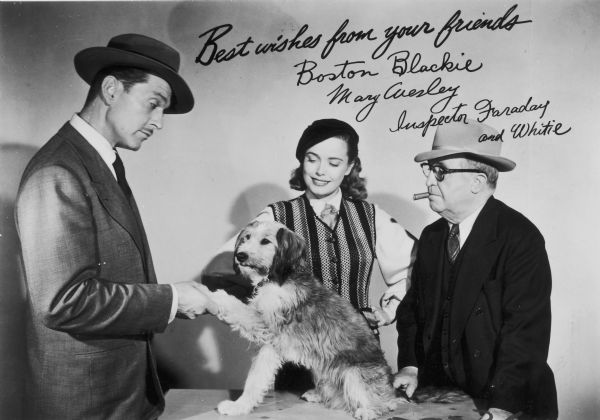 Blackie was portrayed by Kent Taylor on the TV series. Lois Collier was cast as Blackie’s ever-present girlfriend, Mary with Frank Orth playing Inspector Farraday as an even bigger blockhead than he was the movies.
Blackie was portrayed by Kent Taylor on the TV series. Lois Collier was cast as Blackie’s ever-present girlfriend, Mary with Frank Orth playing Inspector Farraday as an even bigger blockhead than he was the movies.
Produced by Ziv Television (who also gave us Bat Matterson, Sea Hunt & Highway Patrol among others), the series was only in production for 2 seasons (1951-1952) and was sold directly to local stations through syndication. Despite the low number of episodes, many stations continued to rerun the series until color really took hold and series with far more episodes made Blackie a thing of the past.
The series is remembered to day only because its lead gave Jimmy Buffet the inspiration for his song “Pencil-Thin Mustache” – an ode to several long-gone shows from TV’s earliest days.
As the series has passed into the public domain, there are several video collections of various episodes available for the home video market.
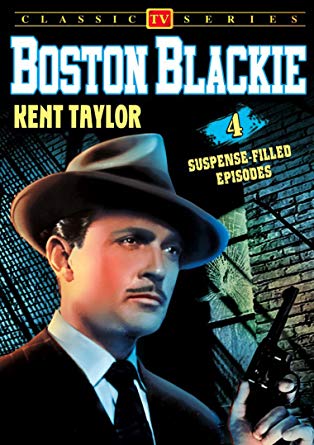
The Story Behind the Song – “Sunday Bloody Sunday” (1983)
 Most of us know the situation in Northern Ireland has been tense for decades. That tension bubbled over into tragedy on January 30, 1972, when a group of unarmed civil rights activist, protesting Britain’s practice of imprisoning suspected Irish radicals without trial.
Most of us know the situation in Northern Ireland has been tense for decades. That tension bubbled over into tragedy on January 30, 1972, when a group of unarmed civil rights activist, protesting Britain’s practice of imprisoning suspected Irish radicals without trial.
British troops opened fire on the crowd, killing 13. As you might expect, British investigators bought the soldiers’ claims of “self-defense” and exonerated them.
A little over 10 years later, the Irish rock band U2 wrote a song about it for their album War.
U2’s front man, Bono, claims the song is not meant to be partisan, just a simple plea for peace and calm.
BTW – In 2010, the British government finally accepted responsibility for the massacre, calling it “unjustifiable.”

Remember When Gum Came With Comics?
Maybe you remember Bazooka Joe. But who remembers Pud?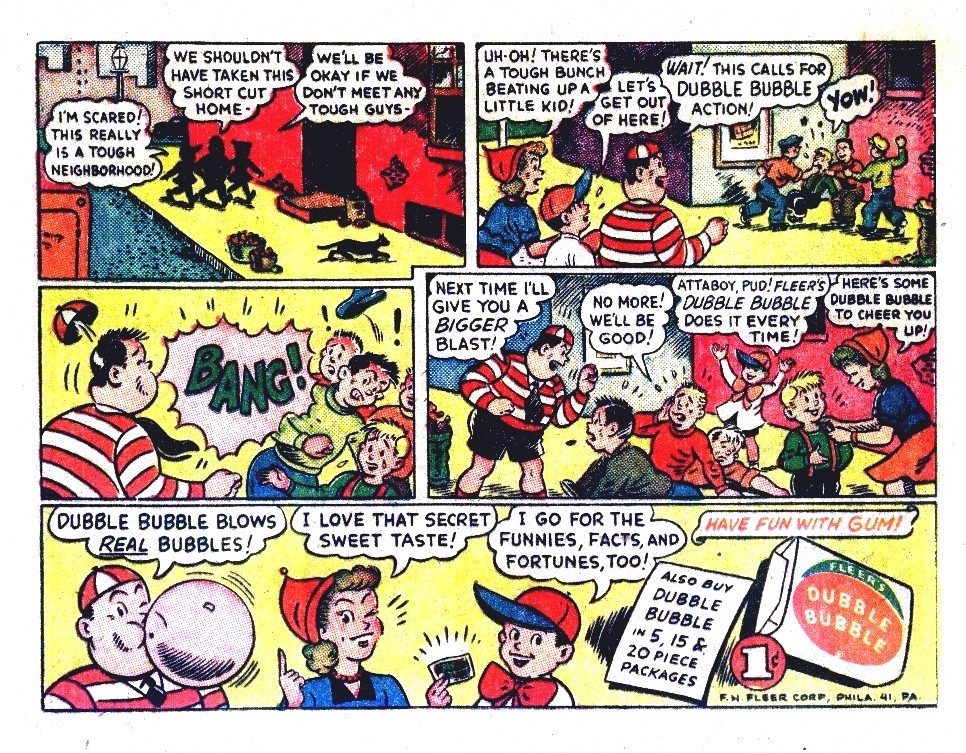
Good Morning World (1967)
On paper, this TV series couldn’t miss. It was created by the two guys (Bill Persky & Sam Denoff) who had been head writers on The Dick Van Dyke Show and had launched Marlo Thomas to stardom by creating That Girl for her just a year earlier. It had TV series geniuses, Sheldon Leonard and Carl Reiner, calling the shots behind the scenes.
Unfortunately, Good Morning, World crashed and burned after only a single season.
The show’s premise was original. It starred Ronnie Schell and Joby Baker as a pair of zany morning DJs named Lewis & Clarke at a struggling L.A. radio station owned by Billy DeWolfe. Baker was married to a cute, sexy wife (Julie Parrish) while Schell was dating a ditzy blonde, played by a newcomer named Goldie Hawn.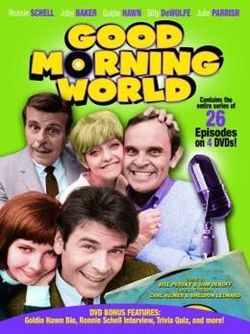 What went wrong? It seems the show’s writers chose to focus the show on the wrong characters. The series began as a starring vehicle for Schell, who had become a breakout character as Jim Nabors’ best buddy on Gomer Pyle. But the writers treated the show like another Dick Van Dyke, revolving most of the plots around Baker and Parrish as the young married couple.
What went wrong? It seems the show’s writers chose to focus the show on the wrong characters. The series began as a starring vehicle for Schell, who had become a breakout character as Jim Nabors’ best buddy on Gomer Pyle. But the writers treated the show like another Dick Van Dyke, revolving most of the plots around Baker and Parrish as the young married couple.
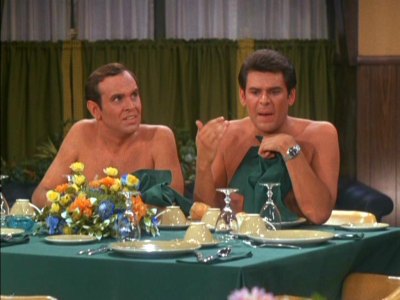 The problem was that Baker was no Dick Van Dyke and Parrish was no Mary Tyler Moore. Apparently, Baker had real trouble memorizing his lines while Parrish was battling some real-life medical issues. So, the characters with the real comedic chops, Schell, DeWolfe and of course, Hawn, were relegated to supporting character status. In fact, Hawn only appeared in a handful of the series’ 26 episodes.
The problem was that Baker was no Dick Van Dyke and Parrish was no Mary Tyler Moore. Apparently, Baker had real trouble memorizing his lines while Parrish was battling some real-life medical issues. So, the characters with the real comedic chops, Schell, DeWolfe and of course, Hawn, were relegated to supporting character status. In fact, Hawn only appeared in a handful of the series’ 26 episodes.
According to Schell, there was talk of a second season, recasting the Baker & Parrish roles, but CBS decided instead to simply throw in the towel.
There was a silver lining. Schell was welcomed back onto Gomer Pyle while a producer named George Schlatter had caught the show and thought the ditzy blonde actress might have potential. He called Goldie and asked her if she might want to continue playing basically the same character on a new variety show he was putting together. That show was called Laugh-In.
Hawn said yes and the rest is show biz history.
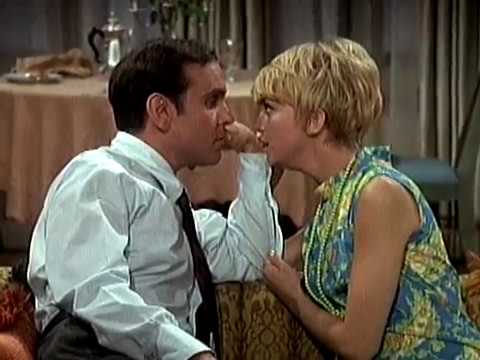
Supergroups of the Sixties - The Searchers
 When Beatlemania exploded across America, record labels began scouring England and specifically Liverpool looking for groups that might be able to follow the Fab Four up the charts.
When Beatlemania exploded across America, record labels began scouring England and specifically Liverpool looking for groups that might be able to follow the Fab Four up the charts.
One of the first to accomplish this feat was the Searchers, a British band that took their name from John Wayne’s classic Western film. Like their fellow Liverpudlians, the Searchers had begun as a skiffle band and gradually morphed into a rock act. They also had played at Hamburg’s Star Club, honing a solid live act.
The Searchers hit the UK charts in 1963, right on the heels of the Beatles with their recording of “Sweets for My Sweet.” They followed that with “Sugar and Spice,” a song written by their producer Tony Hatch. They boke into the U.S. charts in early 1964 with their version of a song co-written by Sonny Bono, “Needles and Pins.” Between 1964 and 1965, they scored 7 Top 40 hits in the States. Unfortunately, “Sugar & Spice” was not one of them as a Chicago band called the Cryan’ Shames did a virtual note-for-note cover that beat the Searchers to the U.S. charts.
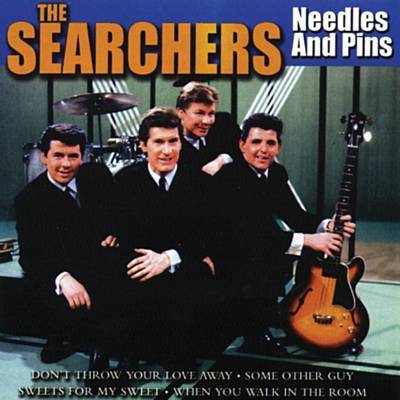 Even more unfortunately, in 1965, the hits just stopped coming. The band continued recording and touring, but were relegated to “oldies” act status by the early 1970s. The Searchers managed to land a new record contract with Sire Records in 1979 and recorded two albums for that label that received a very favorable response from the critics and from live audiences when the band began working this new material into their live sets. Alas, radio airplay was virtually non-existent and sales were sluggish (although a compilation of their work for Sire is still available on CD).
Even more unfortunately, in 1965, the hits just stopped coming. The band continued recording and touring, but were relegated to “oldies” act status by the early 1970s. The Searchers managed to land a new record contract with Sire Records in 1979 and recorded two albums for that label that received a very favorable response from the critics and from live audiences when the band began working this new material into their live sets. Alas, radio airplay was virtually non-existent and sales were sluggish (although a compilation of their work for Sire is still available on CD).
Like many groups, the band went through personnel changes over the years with only rhythm guitar/vocalist John McNally staying with them from start to finish. Bassist Frank Allen had the second longest tenure, joining in the summer of 1964 and then staying with the band for the rest of their career. The band’s most distinctive vocalist and lead guitar player, Mike Pender was with the group from 1960 until 1985. The band went through drummers almost as quickly as Spinal Tap with Chris Curtis manning the kit during the time the Searchers cranked out all their hits.
The group actually continued performing until March of 2019 when they finally announced their retirement.

A Searchers playlist:
- “Sweets for My Sweet”
- “Sugar & Spice”
- “Needles & Pins”
- “(Ain’t That) Just Like Me”
- “Don’t Throw Your Love Away”
- “When You Walk in the Room”
- “Farmer John”
- “Love Potion No. 9”
- “What Have They Done to the Rain”
- “Take Me for What I’m Worth”
- “Have You Ever Loved Somebody?”
- “Hearts in Her Eyes”
- “Almost Saturday Night”
- “Love’s Melody”
- “Everything But a Heartbeat”
The Story Behind the Song – “Mony Mony” (1968)
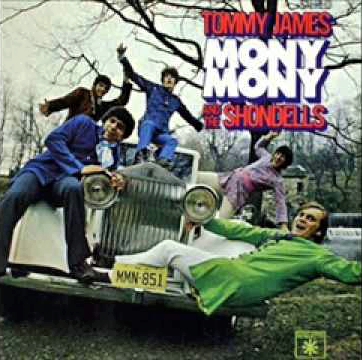 Tommy James’ “Mony Mony” is one of those great little rock songs from the 60s that has aged very well. Thanks to a cover from Billy Idol in the 1980s, the song was reintroduced to a whole new generation of listeners. But what, exactly, is the song about?
Tommy James’ “Mony Mony” is one of those great little rock songs from the 60s that has aged very well. Thanks to a cover from Billy Idol in the 1980s, the song was reintroduced to a whole new generation of listeners. But what, exactly, is the song about?
Not much, as it turns out. Tommy James says he and songwriting partner, Ritchie Cordell, were just trying to come with a frat/party rock song in the vein of “California Sun” or “Money (That’s What I Want)”… something that cut against the grain of all the “serious” rock that was then dominating the music scene.
So, who the heck is “Mony?”
Ah, there is the real story. James and Cordell had most of the song together. They had even created the music tracks in the studio. But they were stuck on a girl’s name. They wanted it to be unusual (like “Sloopy”) and it had to be two syllables to fit the track they had already created.
The pair were sitting in James’ apartment in New York City trying to complete the song. As James tells it: “…finally we get disgusted, we throw our guitars down, we go out on the terrace, we light up a cigarette, and we look up into the sky. And the first thing our eyes fall on is the Mutual of New York Insurance Company. M-O-N-Y. True story.”
And for the first and probably last time in rock history, an insurance company inspired a classic song!
Pop Up Player
Latest Posts–Health & Wellness
-
Chill Out & Lose Weight?
As we head into winter, the experts say turning down your thermostat can cause your body to produce a hormone called irisin that can lead to burning more calories and weight loss! You don’t have…
-
Are You Hot or Cold When It Comes to Pain Relief?
There have long been two schools of thought regarding bodily pain. Some tell you to put ice on it. Some tell you to use heat. Which is better? That depends. According to this most recent…
-
Tips for Better Sleep
As we grow older, many of us begin experiencing trouble sleeping through the night. If you find yourself waking up in the dark multiple times during the night, try these “sleep hacks” to getting a…
-
Vitamin C to See
Research indicates that vitamin C can reduce the risk of developing cataracts. But don’t start popping pills. The study also should that this benefit only comes from dietary vitamin C. In others words, you need…
-
To Vape or Not to Vape
Vaping – the practice of smoking using an “electronic cigarette” has been touted as a safe alternative smoking, but is it really? If you are a current tobacco smoker, the answer is – it’s safer…
-
Beating the 4 AM Blues
Many us find sleeping all the way through the night more of a challenge than we did a few years ago. Here are some of the most common cause…and cures! Eating Too Close to Bedtime…




